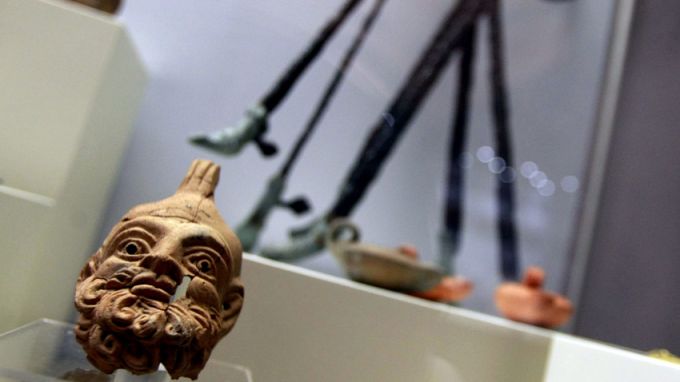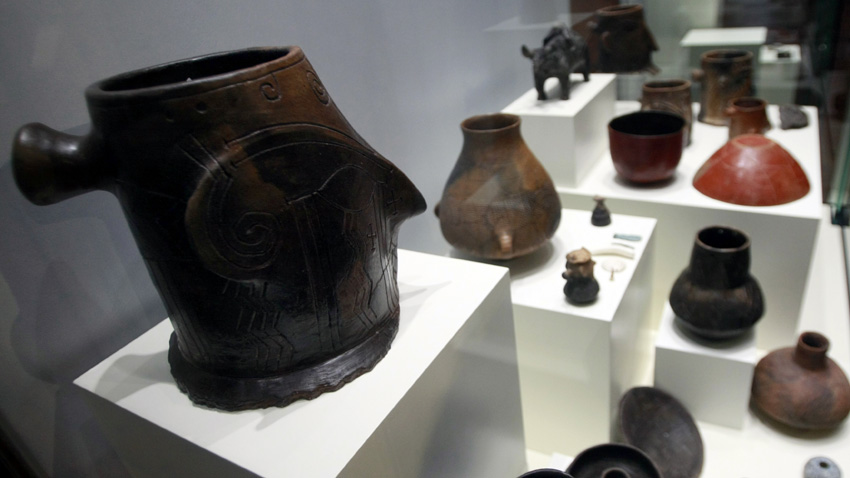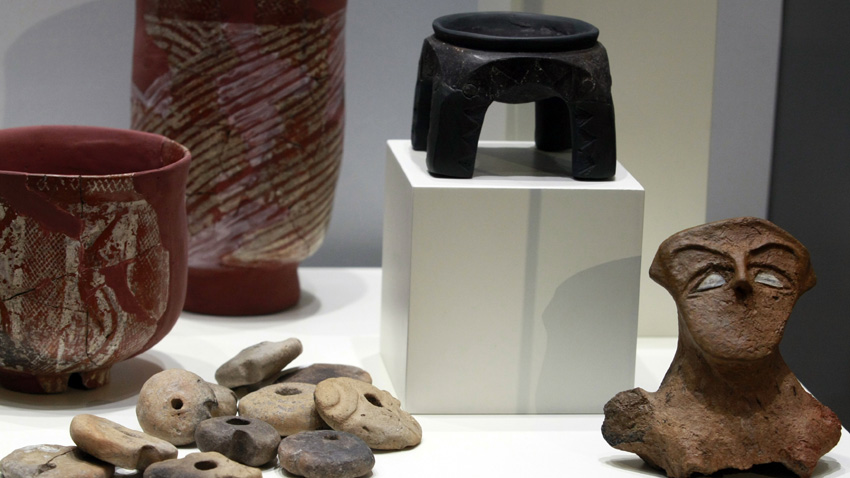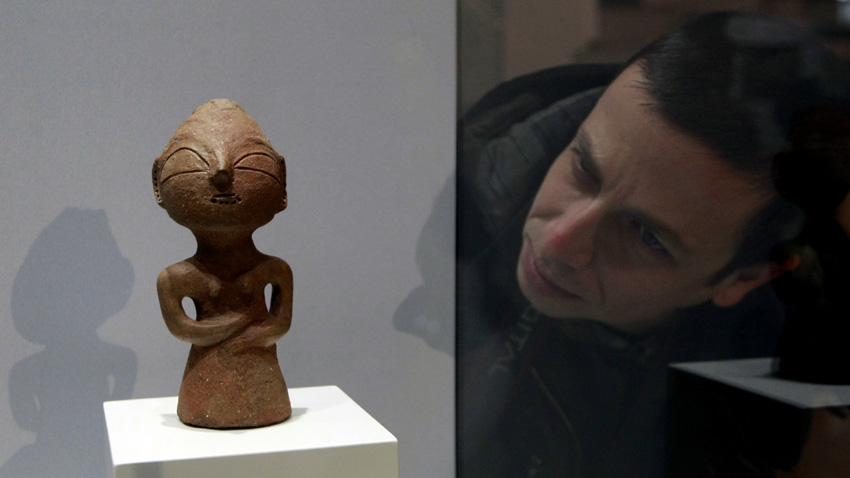 6
6
On International Archeology Day, February 14th, Bulgaria’s Archeological Institute with Museum with the Bulgarian Academy of Sciences unveils for the seventh consecutive year an exhibition with artefacts discovered during the past archeological season. This collection of exhibits is the result of the work of local successors of Indiana Jones and their foreign colleagues in their exploration of the rich history of Bulgarian lands. Beautiful clay vessels and statuettes, bronze items, and gold jewelry tell about the everyday life of the people who inhabited Bulgaria’s present-day lands. In a virtual walk amidst all these treasures we are accompanied by Doctor Kamen Boyadzhiev from the National Museum of Archeology:

“This year we showcase some of the most interesting exhibits from the past archeological season – 2013. We have tried to display as many items as possible with varying timelines. Some of them have been traditionally studied during long years of archeological digs. Others located close to large infrastructure sites have been studied very intensely. The exhibition presents the major highlights of the season. We start with the Paleolithic age and the Kozarnika cave in Northwestern Bulgaria. We show a very interesting find of adornments dating back to the Paleolithic age. These are some of the earliest decorations discovered in the Balkan Peninsula. I continue with the later Iron and Copper-Iron age. The exhibits were unearthed at two large sites in the Haskovo region. These are very interesting anthropomorphic vessels and figurines richly decorated and causing great interest. From the late Bronze Age we display finds unearthed at the necropolis near the village of Baley, in the region of Vidin, which was part of an entire archeological complex with an inhabited settlement from the 16-9th century BC. Archeologists have discovered more than 50 vessels, including dozens of urns dating back 3,000 years ago.”

The exhibition also features interesting items unearthed at the gold-mine Ada Tepe in the Rhodopes – one of the earliest mines for recovering the noble metal known in Europe so far. Also, of much interest are the antique finds from Apollonia (present-day Sozopol) with very interesting ceramic vessels with valuable inscriptions. They are the historical source for the emergence of the settlement and the cult for Apollo. Archeology addicts would also be able to enjoy artefacts from the Roman age. They include gold adornments, bronze masks and figurines, a rare find of a folding soldier’s chair. There are also artefacts from a burial mound close to Sliven. The medieval age is traditionally presented by items uncovered in the former Bulgarian capitals of Pliska and Preslav. Who are the organizers of the exhibition this year?

“It is the result of a collaboration between 11 historical and archeological museums in this country, which have opened their repositories in order to show the most exciting and valuable exhibits they store, that have shaped the face of the archeological season 2013”, Kamen Boyadzhiev says in conclusion.
Sofians and guests of the capital could get a first-hand experience of this valuable archeological legacy until the end of March.
English version: Rossitsa Petcova
Pipes from the end of the 17 th , the 18 th and the 19 th century and the tradition of growing tobacco in Bulgaria are presented in the newest exposition at the Museum of Archaeology in Burgas. “Pipes like this are to be found often on the..
In Bulgaria, when we talk about a person with bad luck, we often say: "Ah, what a Marko Totev!" But who exactly was Marko Totev, and how did his name become a byword for a person with ill fortune and a bad luck? "He was a Bulgarian public figure..
30 March marks the end of the most blessed time of the year, as Muslims call the month of Ramadan. This year it started on 1 March, and the most important obligation Muslims have during this 30-day period is to refrain from food, drink and temptation..
Pipes from the end of the 17 th , the 18 th and the 19 th century and the tradition of growing tobacco in Bulgaria are presented in the newest..

+359 2 9336 661
